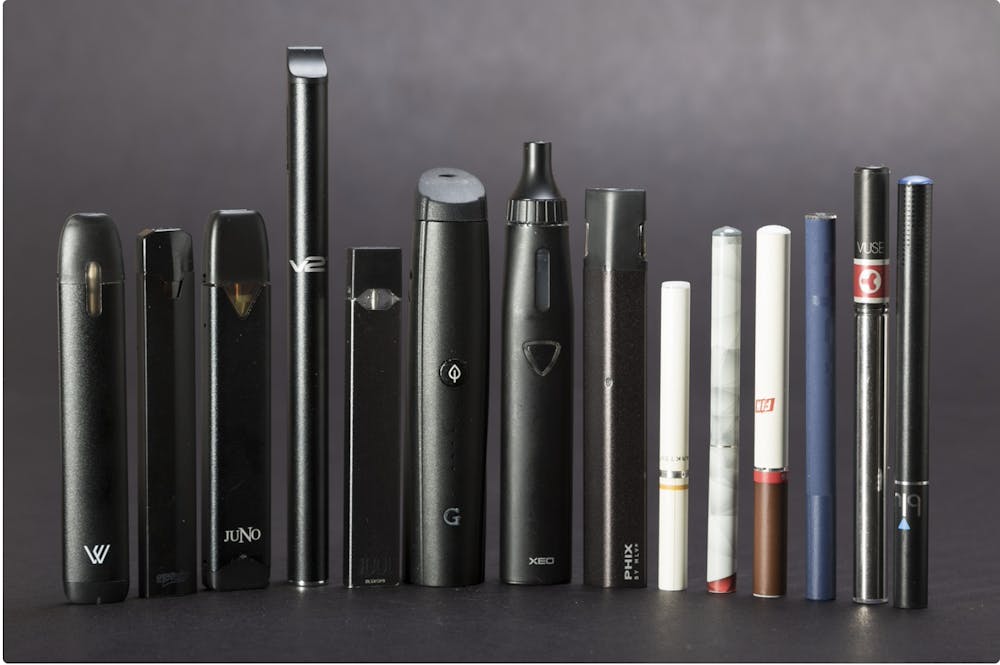Since the novel coronavirus (COVID-19) predominantly affects the respiratory system, several studies have looked at the connection between smoking or vaping and the risk of COVID-19 infection. Scientists suspect that smoking and vaping increase a person’s risk of severe COVID-19.
A study conducted by researchers at the University of Florida and in Beijing in February found that more men in China were hospitalized for COVID-19 than women. They suspected that this may be related to the fact that many more men than women smoke in the country.
Similarly, researchers at the Huazhong University of Science and Technology found that out of their sample size of 78 patients with COVID-19, patients with a history of smoking were around 14 times as likely to have a greater progression of the disease. On the other hand, non-smokers had a significantly higher rate of health improvement.
In an email to The News-Letter, Dr. Nicholas Rowan, an otolaryngologist at Hopkins Hospital, explained how smoking and vaping inhibit respiratory function.
“The very basic principle here is that inhaled smoke acts as an irritant to respiratory mucosa, whether it is in the nose, airway or lungs, and decreases its ability to function,” Rowan wrote. “Impaired functioning of the respiratory mucosa decreases the ability of the protective mechanisms to function appropriately.”
This process may consequently make smokers/vapers more susceptible to COVID-19 infection. Rowan noted that the risk faced by cigarette smokers extends beyond a higher likelihood of acquiring respiratory infection.
“If you compare a smoker vs. non-smoker, the smoker is more likely to be on a mechanical ventilator longer and more likely to have respiratory associated complications like pneumonia and lung consolidation,” Rowan stated.
This compounds problems for U.S. hospitals, which are already facing a shortage of ventilators amid the growth of the COVID-19 epidemic.
In an interview with CNN, Dr. Steven Choi of the Yale School of Medicine noted that the spread of diseases like coronavirus call for a large supply of ventilators.
“What we’re seeing in COVID-19 patients in Asia, Italy and the U.S. is that when patients do end up being ill enough to be admitted to the ICU, they need to be intubated and remain on a ventilator for two to three weeks, which increases the demands for ICU beds and ventilators dramatically,” Choi said.
However, the Center for Health Security at Hopkins estimated in a report last month that the U.S. has 160,000 total ventilators in all hospitals across the nation — not nearly enough ventilators to provide effective care during a nationwide pandemic.
Major cities across the nation are already feeling the effects of this shortage. On Tuesday, March 24, New York Governor Andrew Cuomo estimated that New York — the state that currently has the greatest number of COVID-19 cases in the U.S. — would need at least 30,000 additional ventilators to effectively counter the pandemic.
Although a concrete determination can be made on smoking as a known risk factor for influenza, not enough research has been done to say the same for COVID-19. Given the novelty of COVID-19, studies are still underway to determine an association.
Hopkins pediatric pulmonologist Dr. Christy Sadreameli conceded that there is an overall lack of studies examining the link between smoking or vaping and susceptibility to or severity of infection with the novel coronavirus. However, she noted that there is a certain link between traditional combustible cigarettes and respiratory illnesses. Evidence shows that the same link may exist for vaping.
“While we do not yet have any basic, animal, or human studies examining vaping and susceptibility to or severity of infection with the novel coronavirus, there is growing evidence that vaping injures pulmonary airway epithelium, is pro-inflammatory to the lungs and may interfere with the lung's ability to perform normal repair processes and fight off infection,” Sadreameli wrote in an email to The News-Letter.
Sadreameli noted that scientists know more about the link between traditional cigarettes and respiratory illnesses because they have been around much longer than vaping, which is a relatively new trend. Nonetheless, Sadreameli noted that scientists know enough to caution against vaping.
Existing scientific literature suggests that vapers are more likely to be infected by respiratory viruses.
A study conducted by researchers at the University of North Carolina, Chapel Hill and published in 2016 by the American Physiological Society found that vaping suppresses immune and inflammatory-response genes in nasal epithelial cells, possibly causing more damage than smoking cigarettes.
Animal studies have also shown the damage vaping causes for immune system responses to infection. Researchers at Hopkins, University of Tennessee and Louisiana State University published a study in 2015 that found that exposure to electronic cigarettes impairs pulmonary anti-bacterial and anti-viral defenses in murine models.
“We know enough about the ill effects of vaping on the lungs to be concerned about those who vape and their potential for more serious illness. Now is a good time to stop vaping. And also a good time to stop smoking,” Sadriameli advised.
Sadriameli suggested that the increasing use of telemedicine, or medical appointments in which doctors and patients connect remotely, is an ideal tool for those looking to quit.
“I encourage people who vape or smoke and are interested in quitting to talk to their healthcare provider today. A lot of this is ideal for a phone call or a telemedicine visit too, both of which are happening more during the coronavirus pandemic than ever before,“ she said.





